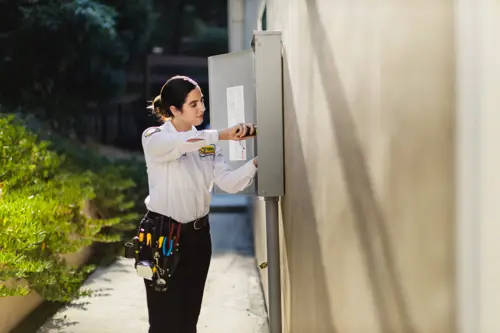 Do I Need a Dedicated Circuit for My EV Charger? Here’s the Scoop
Do I Need a Dedicated Circuit for My EV Charger? Here’s the Scoop
Hey there! If you’re like me and thinking about getting an EV (or maybe you already have one), you’ve probably wondered about setting up a charging station at home. The big question on everyone’s mind seems to be whether you need a dedicated circuit for it. Let me break this down for you in plain English.
The Basics: EV Charging 101
First things first – let’s talk about what we’re dealing with here. Your EV is basically a big battery on wheels that needs juice, and there are a couple of ways to charge it. You’ve got Level 1 chargers, which are those basic ones that plug into any old outlet (you know, like the one you use for your phone). Then there’s Level 2, which is where things get interesting – these bad boys charge way faster but need their own dedicated circuit.
Why Would I Want a Dedicated Circuit Anyway?
Look, I get it – installing a dedicated circuit sounds like a hassle. But here’s the thing: it’s kind of like giving your EV its private power highway instead of making it share a crowded street with all your other appliances. This means you won’t have to worry about blowing a fuse every time you try to microwave dinner while charging your car (trust me, that gets old fast). Plus, it’s just safer overall – nobody wants to deal with electrical fires or fried circuits.
The Speed Factor: Time is Money
Let’s talk charging speed because this is where it gets really interesting. With a regular outlet, you’re looking at an overnight charging situation like, a full 12-24 hours to get your battery topped up. But with a dedicated circuit and a Level 2 charger?
We’re talking just a few hours. It’s the difference between waiting for a snail mail letter and sending a text message. If you’re someone who needs their car ready to go without much notice, this is huge.
Installation: Not a DIY Project
Here’s the real talk, installing an EV charging station isn’t something you want to DIY unless you’re a licensed electrician. You’ll want a pro to check out your home’s electrical system and make sure everything’s up to snuff. They’ll look at things like your electrical panel’s capacity and whether you need any upgrades. Think of it like getting a medical checkup – better to know what you’re dealing with upfront.
Let’s Talk Money
I know what you’re thinking – “How much is this going to cost me?” Yes, there’s an upfront investment in installing a dedicated circuit. But here’s the silver lining: it could save you money in the long run. You’ll charge more efficiently, and if you ever decide to sell your house, having an EV charging setup could be a pretty sweet selling point. More and more buyers are looking for EV-ready homes these days.
Check Your Local Rules
Quick heads up – before you dive in, check what your local area requires. Some places have specific rules about EV charger installations, and others might even offer sweet rebates or incentives. It’s like checking the weather before a road trip – better to know what you’re getting into.
Future-Proofing Your Setup
EVs are evolving faster than smartphone technology these days. Having a dedicated circuit is like buying a phone with extra storage – you might not need all that capacity now, but you’ll be glad you have it later when new features and capabilities come along.
Managing Your Home’s Power
Think of your home’s electrical system like a pizza – there are only so many slices to go around. Adding an EV charger is like adding another hungry friend to the dinner table. A dedicated circuit means your EV gets its own pizza, so to speak, without fighting over slices with your dishwasher or AC.
The Green Factor
Let’s not forget why many of us are considering EVs in the first place, to be more environmentally conscious. Having an efficient home charging setup helps maximize the environmental benefits of your choice. It’s like recycling, doing it right makes it more effective.
Final Thoughts
At the end of the day, whether you need a dedicated circuit depends on your situation. But if you’re planning to use your EV as your main ride, I’d say it’s worth serious consideration. It’s safer, faster, and more future-proof than trying to get by with a regular outlet.
The best advice I can give? Talk to some folks who already have EVs in your area, and consult with a licensed electrician. They can help you figure out what makes the most sense for your specific situation. And remember, while it might seem like a big step now, it’s an investment in making your EV ownership experience as smooth as possible.
